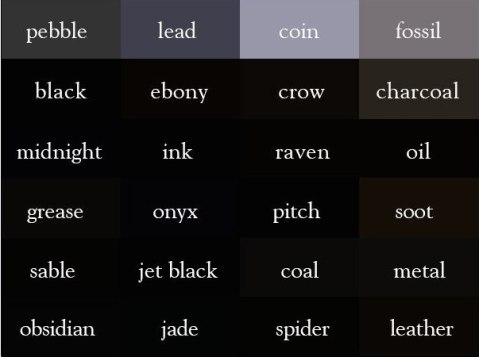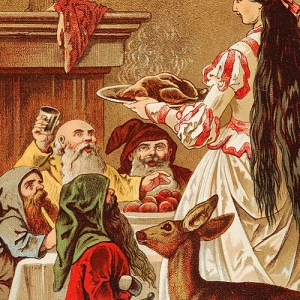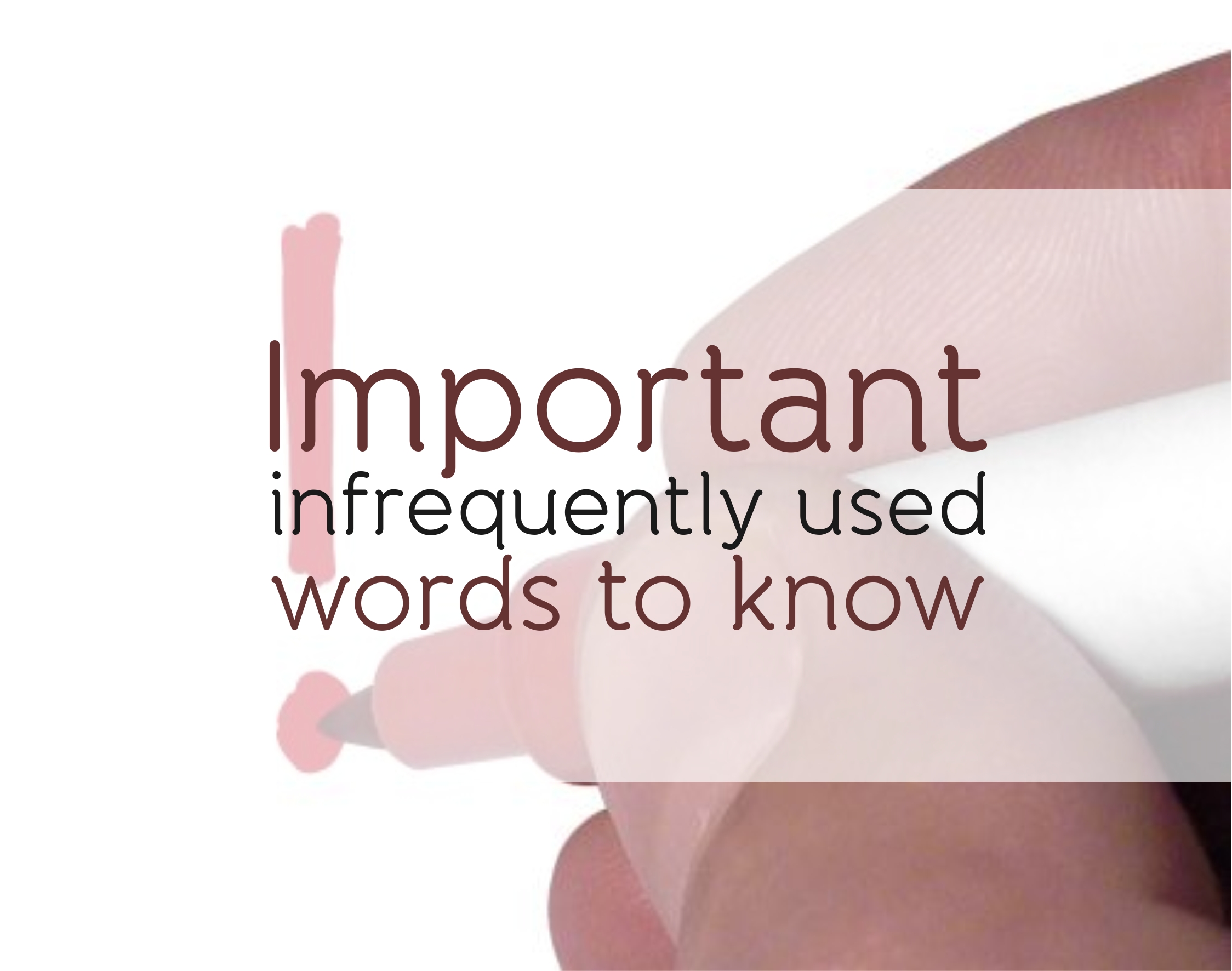240 color names in English
From snow to jade, if you are struggling to describe a color or you just want to broaden your vocabulary.
(Although the blacks seem all the same to me.)









The Politically Incorrect Etymologies of 10 Words and Phrases
At various moments in its life, a word will hop languages, change meanings, travel through sinister moments and land in pleasant ones. But no matter how many times it’s superimposed, and how far it gets from its original source, a word doesn’t let go of its memories easily. Here are 11 modern English words with socially insensitive origins.
1. Hysteria (n.) – a wild, irrational eruption of fear or emotion
Hysteria begins in the womb, or so thought the medical scholars of the 1610s, who named the condition after the Latin hystericus, meaning “of the womb.” Those who’ve studied the Victorian era, or read The Awakening in high school, may know that the go-to prognosis of the time for just about every female’s symptom from the occasional hissy fit to chronic seizures was a pesky wayfaring uterus. The condition was thought to be caused by sexual frustration and cured by intercourse or pelvic massage, the latter often performed by physicians and midwives. When doctors finally got fed up with the tedious task in the late 19th century, the personal vibrator was created to take their place. Read More…
35 Modern Words Recently Added to the Dictionary

The Oxford Dictionary Online is a warehouse of over 600,000 words. Despite this large arsenal, we continue to coin, clip, and blend new words into existence, and the Oxford folks pump some of these new words into their dictionaries. Here are some more recent additions with their official definitions.
1. Bling (n): Expensive, ostentatious clothing and jewelry.
*
2. Bromance (n): A close but non-sexual relationship between two men.
*
3. Chillax (v): Calm down and relax.
*
9 Novel English neologisms
[nurd]

Yahoo
[yah-hoo, yey-, yah-hoo]
Chortle
[chawr-tl]

Quark
[kwawrk, kwahrk]
Utopia
[yoo-toh-pee-uh]

Tintinnabulation
[tin-ti-nab-yuh–ley-shuhn]

Grok
[grok]

Cyberspace
[sahy-ber-speys]

Catch-22
[kach-twen-tee-too]

SOURCE
8 Tantalizing Terms for Eating
Gobble
[gob–uhl]
 There are many different ways to partake in a meal: if your appetite is slight, then you might peck and nibble, but if you’re famished, you’re more likely to gobble. This word, which means both “to eat hastily” and “to make the throaty cry of a male turkey,” is thought to be a formation from the word gob, which is slang for mouth. Both definitions could be fun to try out at the dinner table.
There are many different ways to partake in a meal: if your appetite is slight, then you might peck and nibble, but if you’re famished, you’re more likely to gobble. This word, which means both “to eat hastily” and “to make the throaty cry of a male turkey,” is thought to be a formation from the word gob, which is slang for mouth. Both definitions could be fun to try out at the dinner table.Devour
[dih-vou–uhr, –vou-er]
 Another term for the ravenous, the word devour conjures a beastly manner of eating. The word is often invoked to express a degree of barbarous consumption, as in this passage from Robinson Crusoe about men so hungry they’d lost command of themselves: “The poor Creatures rather devour’d than eat it.”
Another term for the ravenous, the word devour conjures a beastly manner of eating. The word is often invoked to express a degree of barbarous consumption, as in this passage from Robinson Crusoe about men so hungry they’d lost command of themselves: “The poor Creatures rather devour’d than eat it.”Scarf
[skahrf]
 More than a festive fashion accessory, scarf can also mean “to eat, especially voraciously“. It’s often paired with a helping word, such as up or down, and implies a rapid or frenzied feeding. Those who scarf up their meals are often the first ones at the table to finish, and, as a result, the first ones to nap.
More than a festive fashion accessory, scarf can also mean “to eat, especially voraciously“. It’s often paired with a helping word, such as up or down, and implies a rapid or frenzied feeding. Those who scarf up their meals are often the first ones at the table to finish, and, as a result, the first ones to nap.Grub
[gruhb]
 One of the more versatile words on this list when it comes to discussing cuisine, grub can be used to refer to food itself, to the supplying of food, and to the eating of food. Needless to say, it’s a handy word to have in your back pocket at a family meal. But beware: in its noun form, this wily word can also mean “a dull, plodding person“, or the “sluggish larva, as of a scarab beetle“. Use this term wisely at the dinner table.
One of the more versatile words on this list when it comes to discussing cuisine, grub can be used to refer to food itself, to the supplying of food, and to the eating of food. Needless to say, it’s a handy word to have in your back pocket at a family meal. But beware: in its noun form, this wily word can also mean “a dull, plodding person“, or the “sluggish larva, as of a scarab beetle“. Use this term wisely at the dinner table.Chow Down
[chou]
 Associated more with meals of substance than snacks, the phrase chow down incorporates the word chow, which was perhaps brought to us from the Chinese pidgin English word chow-chow meaning “food.”
Associated more with meals of substance than snacks, the phrase chow down incorporates the word chow, which was perhaps brought to us from the Chinese pidgin English word chow-chow meaning “food.”Gorge
[gawrj]
 This word, which comes to us from the Old French verb gorger, means both “to eat greedily” and “to stuff with food.” In its noun form, gorge can refer to a gluttonous meal or the throat. So remember: the next time you gorge on a gorge, be sure to wash it down with water; we wouldn’t want anything to get stuck in your gorge.
This word, which comes to us from the Old French verb gorger, means both “to eat greedily” and “to stuff with food.” In its noun form, gorge can refer to a gluttonous meal or the throat. So remember: the next time you gorge on a gorge, be sure to wash it down with water; we wouldn’t want anything to get stuck in your gorge.Nosh
[nosh]
 Unlike devour and gorge, this word for eating implies a lighter and more casual consumption. Nosh means “to snack or eat between meals” or “to snack on.” It came to English from the Yiddish nashn meaning “to nibble”.
Unlike devour and gorge, this word for eating implies a lighter and more casual consumption. Nosh means “to snack or eat between meals” or “to snack on.” It came to English from the Yiddish nashn meaning “to nibble”.Gormandize
[v. gawr-muhn-dahyz]
 Those who gormandize at the dining table eat in a particularly greedy or ravenous manner. The word comes to us from the Middle French gourmand, meaning “glutton.” In English, the noun gourmand has the slightly less pejorative sense of “a person who is fond of good eating, often indiscriminately and to excess.”
Those who gormandize at the dining table eat in a particularly greedy or ravenous manner. The word comes to us from the Middle French gourmand, meaning “glutton.” In English, the noun gourmand has the slightly less pejorative sense of “a person who is fond of good eating, often indiscriminately and to excess.”SOURCE
Simple but Intelligent Word Choices
#10: Lucid
#9: Austere
#8: Volatile
#7: Stoic
#6: Caustic
#5: Maudlin
#4: Lurid
#3: Glib
#2: Cavalier
#1: Demure
Read more…
18 Common Words That You Should Replace in Your Writing

It’s a familiar scene: you’re slumped over your keyboard or notebook, obsessing over your character. While we tend to agonize over everything from structure to backstory, it’s important to weigh how you write something too. A perfectly constructed world is flat on the page if you use feeble, common words. When you’re finished constructing your perfectly balanced world, do your writing a favor and take another pass to weed out these 18 haggard words.
Good
High on any list of most used English words is “good.” While this word may appear to be the perfect adjective for nearly anything, that is precisely what makes it so vague. Try getting more specific. If something’s going well, try “superb,” “outstanding” or “exceptional.”
New
Another of the common words in English is “new.” “New” is an adjective that doesn’t always set off alarm bells, so it can be easy to forget about. Give your writing more punch by ditching “new” and using something like “latest” or “recent” instead.
Long
Much like “new,” “long” is spent, yet it doesn’t always register as such while you’re writing. Instead of this cliché phrase, try describing exactly how long it is: “extended,” “lingering” or “endless,” for example.
Old
“Old” is certainly one of those common words that means more to readers if you’re specific about how old a subject is. Is it “ancient,” “fossilized,” “decaying” or “decrepit”?
Right
“Right” is also among the common words that tends to slip through our writer filters. If somebody is correct, you could also say “exact” or “precise.” Don’t let habit words like “right” dampen your writing.
Different
Here’s another adjective that falls a bit flat for readers, but can also easily be improved by getting more specific. Saying something is “odd” or “uncommon” is very different than saying it is “exotic” or “striking.”
Small
“Small” is another adjective that is too generic for writing as good as yours. Use “microscopic,” “miniature” or “tiny” instead. Even using “cramped” or “compact” is more descriptive for your audience.
Large
Just like relying too much on “small,” we tend to describe large things as, well, “large.” Specificity is a big help with this one too: could your subject be “substantial,” “immense,” “enormous” or “massive”?
Next
Whenever we describe something coming “next,” we run the risk of losing our readers. Good options to make your reading more powerful include “upcoming,” “following” or “closer.”
Young
Another case of being too generic is what makes “young” a problematic adjective. If you want your writing to be more captivating, try switching “young” out for “youthful,” “naive” or “budding.”
Never
“Never” is also among common words to use sparingly. Not only is it a common, stale descriptor, it’s also usually incorrect. For something to never happen, even one instance makes this word inaccurate. Try “rarely,” “scarcely” or “occasionally” instead.
Things
“Things” is another repeat offender when it comes to worn out words. Another word where specificity is the key, try replacing “things” with “belongings,” “property” or “tools.”
All
Just like “never,” “all” is an encompassing, absolute term. Not only is “all” unoriginal, it’s not usually factual. Try using “each” and “copious” instead.
Feel
“Feel” is also in the company of common English words. Try using “sense,” or “discern” instead. You can also move your sentence into a more active tense: “I feel hungry” could become “I’m famished,” for example.
Seem
“Seem” is bad habit word we are all guilty of using. Regardless of how well you think your sentence is constructed, try switching “seem” out for “shows signs of.” “Comes across as” is another good option to give your writing more power.
Almost
Another easy adjective to let slip by, “almost” is a wasted opportunity to engage your readers. “Almost” is more interesting if you say “practically,” “nearly” or “verging on” instead.
Just
“Just making” it or “just barely” affording something isn’t very descriptive. To truly grab a reader, we must do better. Try “narrowly,” “simply” or “hardly” to give your phrasing more weight.
Went
Last but not least, avoid using the common word “went” to describe your subject. “Went” is a word that lacks traction. Try using “chose,” “decided on” or “rambled” to truly grab your readers.
SOURCE
Image courtesy
10 Ways to Improve Your SCRABBLE Game
#1: QI
#2: ZA

Definition:: pizza (plural: ZAS) About the Word:ZA (often styled in print as ‘za) is a slang shortening of the word pizza. You may be surprised at the slang found on the tournament SCRABBLE board: BRO, HOMEY, and YO are all accepted words. ZA is the most played word containing the letter Z (and the only playable two-letter word with the letter Z) in tournament SCRABBLE play. Incidentally, .za is the country code for South Africa (Zuid-Afrika is Dutch for “South Africa”), but abbreviations and codes are not acceptable on the SCRABBLE board |
#3: Phoney

About the Word:You probably associate bluffing with poker, but it is just as much a part of serious SCRABBLE play. Tournament players will often make up words that look legitimate to the untrained eye – fake compounds like OUTMANAGE, or plausible misspellings like EJECTER. The choice to play a phoney is a strategic one. (And note: the spelling of the SCRABBLE-specific noun is not the usual phony.) If your opponent doesn’t challenge you, your bluff can earn you points and strengthen your position. If you lose a challenge, you lose your turn. “People win games by taking advantage of their opponents’ mistakes. Knowing the idiosyncrasies of our language is a huge advantage over those who do not,” says SCRABBLE champ Chris Cree. |
#4: RETINAS

Definition:: plural of RETINA, a membrane of the eye About the Word:Getting a rack with these seven letters can be viewed as a SCRABBLE bulls-eye. RETINAS has eight accepted anagrams – ANESTRI, ANTSIER, NASTIER, RATINES, RETAINS, RETSINA, STAINER, and STEARIN – which means nine different words can be played using those same seven letters. The strategic player will evaluate which anagram scores the most, which might most likely be challenged, and which might best accomplish the player’s desired board strategy. |
#5: XU

Definition:: a monetary unit of Vietnam (plural: XU) About the Word:X is a very powerful tile: all five vowels work with the eight-point X to make two-letter words (AX, EX, XI, OX are the four other words). When the X tile is used in an overlapped two-letter play with the X on a triple letter score, the player will almost always score at least 52 points. |
#6: ZLOTY

Definition:: a monetary unit of Poland (plural: ZLOTYS) About the Word:Most foreign currencies, like the previously mentioned XU, plus COLON (plural: COLONES), FRANC, KORUN (plural: KORUNAS, KORUNY, or KORUN), PESETA, NAKFA) are acceptable words. ZLOTY is powerful both because it has the valuable ten-point Z and because it has the unusual -YS plural. |
#7: Hook

About the Word:The SCRABBLE sense of hook isn’t found in standard dictionaries, but it’s defined on the North American SCRABBLE Players Association as:
SCRABBLE players don’t limit themselves to adding S to the end of a word. A single letter can make for surprising changes in the meaning or sound of a word. G can be hooked to the back of ASPIRIN to form ASPIRING and P can be hooked to the front of IRATE to form PIRATE. Members of the NASPA Facebook community shared some of their favorite hooks:
|
#8: GYOZA

Definition:: a stuffed and fried pocket of dough (plural: GYOZAS) About the Word:Many culinary words from around the world are acceptable in SCRABBLE play. The Japanese GYOZA, with the ten-point Z, is particularly valuable. Other useful terms include: SUSHI, PONZU, YAKITORI, SOJU, MOJITO, BURRITO, KNAIDEL, CAPRESE, and POUTINE. |
#9: Bingo

About the Word:A SCRABBLE play that uses all seven tiles is also known as a bingo. Tournament SCRABBLE players count on bingos in every game, because laying down a seven-tile word earns a “bingo” bonus of 50 points. Players building up their SCRABBLE skills might memorize the six-letter bingo stems that can create the most bingos. For instance, the letters AEINST can be used to create 70 different bingos with 23 different seventh letters. And count yourself extremely lucky if you start a game with MUZJIKS. This word (definition: Russian peasants) is the highest scoring opening word possible—128 points, when played without any blanks. |
#10: AMIGO
|
113 words for different things one could eat

These words generally end in “phagous“, from the Greek phagein, or “vorous“, from Latin vorare, both verbs meaning “to eat“. Which suffix you want to use depends on whether you feel like having souvlaki or spaghetti.
Word |
Definition |
| allotriophagy | craving for strange foods |
| androphagy | cannibalism |
| anthropophaginian | cannibal |
| anthropophagous | (again) eating humans |
| aphagia | inability to eat or swallow |
| apivorous | eating bees |
| arachnivorous | feeding on spiders |
| autocoprophagy | eating one’s own feces |
| autophagy | feeding on body’s own tissues |
| baccivorous | eating berries |
| batrachivorous | frog-eating |
| bibliophagist | one who devours books, literally or figuratively |
| calcivorous | feeding on or living in limestone |
| cardophagus | donkey; something that eats thistles |
| carnivorous | eating flesh |
| carpophagous | fruit-eating |
| cepivorous | onion-eating |
| chthonophagia | eating dirt |
| comburivorous | consuming by fire |
| coprophagous | eating feces |
| creatophagous | carnivorous; flesh-eating |
| creophagous | flesh-eating; carnivorous |
| detritivore | animal that eats decomposing organic matter |
| dysphagia | pathological difficulty in swallowing |
| endophagy | cannibalism within a tribe; eating away from within |
| entomophagous | eating insects |
| equivorous | consuming horseflesh |
| exophagy | cannibalism outside one’s own group |
| foliophagous | eating leaves; eating folios of books |
| formivorous | eating ants |
| fructivorous | feeding on fruit |
| frugivorous | eating fruit |
| fucivorous | eating seaweed |
| galactophagist | milk drinker |
| gamophagia | destruction of one gamete by another |
| geophagy | practice of feeding on soil; dirt-eating |
| glossophagine | eating using the tongue |
| graminivorous | feeding on grass or cereals |
| granivorous | feeding on seeds |
| gumnivorous | feeding on tree saps |
| herbivorous | eating only plant matter |
| hippophagy | feeding on horses |
| homnivorous | eating humans |
| hylophagous | eating wood |
| hyperphagia | eating too much |
| ichthyophagous | fish-eating |
| insectivorous | eating insects |
| kreatophagia | eating of raw meat |
| larvivorous | feeding on larvae |
| lignivorous | feeding on wood |
| limivorous | eating mud |
| lithophagous | stone-swallowing; rock-boring; eating rock |
| lotophagous | feeding on lotuses; indolent; lazy; dreamy |
| mallophagous | eating wool or fleece |
| meconophagist | consumer of opium or heroin |
| meliphagous | feeding upon honey |
| mellivorous | honey-eating |
| merdivorous | dung-eating |
| microphagous | feeding on small creatures or plants |
| monophagous | feeding on only one type of food |
| mucivorous | feeding on plant juices |
| mycophagous | eating fungus |
| myristicivorous | feeding upon nutmegs |
| myrmecophagous | feeding on ants |
| necrophagous | feeding on the dead |
| nectarivorous | feeding on nectar |
| nucivorous | nut-eating |
| omnivorous | eating anything; eating both plant and animal matter |
| omophagy | eating of raw flesh as a ritual observance |
| onychophagist | nail-biter |
| ophiophagous | eating snakes |
| oryzivorous | rice-eating |
| ossivorous | feeding on bones |
| ostreophagous | oyster-eating |
| ovivorous | eating eggs |
| ovivorous | eating sheep |
| paedophage | eater of children |
| pagophagia | eating trays of ice to help offset iron deficiency |
| panivorous | bread-eating |
| pantophagy | omnivorousness |
| phthirophagous | lice-eating |
| phyllophagous | leaf-eating |
| phytivorous | feeding on plants |
| phytophagous | feeding on vegetable matter |
| piscivorous | fish-eating |
| placentophagy | eating of the placenta |
| plantivorous | plant-eating |
| plasmophagous | consuming plasma |
| poephagous | eating grass or herbs; herbivorous |
| poltophagy | prolonged chewing of food |
| polyphagous | eating many types of food |
| psomophagy | swallowing food without thorough chewing |
| radicivorous | eating roots |
| ranivorous | eating frogs |
| rhizophagous | root-eating |
| rhypophagy | eating filth |
| sanguivorous | blood-drinking |
| saprophagous | feeding on decaying material |
| sarcophagous | feeding on flesh; carnivorous |
| saurophagous | eating lizards |
| scatophagous | dung-eating |
| seminivorous | seed-eating |
| stercovorous | feeding on dung or excrement |
| thalerophagous | feeding on fresh vegetable matter |
| theophagy | sacramental consumption of a god |
| toxicophagous | eating poison |
| toxiphagous | poison-eating |
| univorous | living on only one host or source of food |
| vegetivorous | eating vegetables |
| vermivorous | eating worms |
| xerophagy | eating of dry food; fast of dry food in the week preceding Easter |
| xylophagous | wood-eating |
| zoophagy | eating animals |
SOURCE
Image source
































